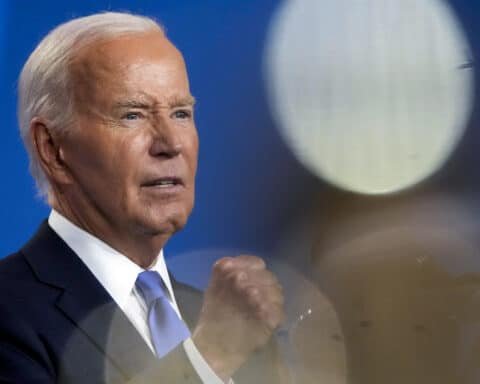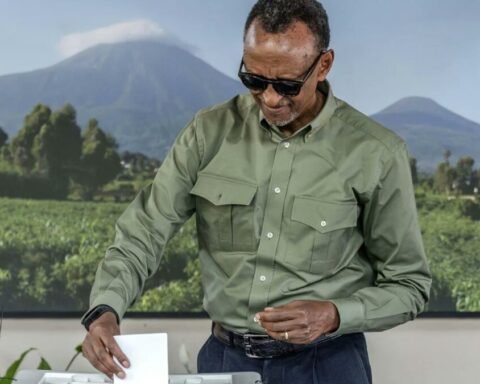By Hubert Sithole
Zimbabwe has a new President and a new cabinet. The ascendency of the former to the throne was greeted with praise, the naming of the latter with skepticism and sometimes sheer outrage.
Excitement at Mugabe’s demise was warranted and justified. The man was obsessed with power at all costs and power for power’s sake. He was that kind of man who burnt his country down so that he could rule the ashes. His resignation in the face of a military intervention, parliamentary impeachment, and mass protests, was a justified. Zimbabwe is a better country today, without him.
Outrage at Mnangagwa’s cabinet appointments however, does not appear justified. It appears motivated by other things, ranging from outright ignorance of law, political etiquette and pre-conceived notions of type, about the man.
Looking at the list of appointees, it is clear the outrage is unfair.
Take for example David Parirenyatwa, who was made minister of health. Parirenyatwa has been among the worst performing ministers. He has been found right in the middle of a conflict of interest when he was awarded a reported $700,000 advance by PSMAS, despite the state medical aid failing to settle bills with other practitioners.
Sadly, no one has taken to the time to assess the list of members of parliament from the ruling party. It is encouraged common cause that the health ministry must always be run by a medical doctor. Outside of spectacled David, I can’t seem to find any other medical doctor. Therefore, Parirenyatwa was not only the most qualified candidate from the pool, but the only candidate.
In Zimbabwe, members of cabinet can only be chosen from either members of parliament, or the senate. The president can only appoint a small number of ministers, 5 if memory serves me well, who are not elected as legislators.
This severely limits the pool from which Mnangagwa could have selected candidates. As shown with Parirenyatwa, whilst the list appears mad, there is likely a method behind the madness.
Another appointment which has generated qualm is that of Perence Shiri. He is now the minister of lands. The reason for the uproar largely comes from Shiri’s association with the infamous North Korean trained 5th Brigade; a unit which unleashed terror on the people of Matebeleland, and Midlands, during what is now known as the Gukurahundi massacres.
But Shiri’s appointment was never based on that. Last year, Shiri and fellow members of the military were at the center of command agriculture; an input scheme that was so successful that Zimbabwe registered its first surplus harvest of maize since 2000.
The Gukurahundi massacres are a very dark part of Zimbabwe’s history, and an unfortunate occurrence, to say the very least. Noone should ever deny them, nor the impact they had on the Ndelebe and Karanga speaking people of Midlands and Matebeleland.
But we must resist using such gory parts of our history for political expedience. Shiri is the minister of lands. He has demonstrated in the last 12 to 18 months that he can efficiently run agricultural programs which lead to harvest.
On Facebook, Michael Mupotaringa explained this in better words. Responding to a comment, he said,
“Whilst I sympathize with the massacres the massacre issue is not related to agriculture. Our love or hatred of him does not mean he is incompetent.
It just means we don’t like him.
Can he do the job? Were previous similar projects successful under his management. If so, the Economy could care less.
The Economy has no emotions it simply follows unbreakable principles of supply and demand.”
Shiri might be a military man, and implicated in Gukurahundi, but he is Minister of lands. He has been appointed in that specific ministry so that he makes sure that we not only have command maize, but command cotton, beef, chicken, wheat, milk, soya beans, etc… If he can achieve a fraction of what command agriculture achieved last year, Zimbabwe will be the bread basket of Africa again, all within 6 to 8 months.
There is also another advantage of putting military men in key positions, especially men who have proved to be efficient. The most efficient economies like that of Israel, Korea, United States, have military men in key positions.
The army is extremely disciplined. Given our rampant corruption, it makes sense to rely on them for now.
Mnangagwa would have also found himself with a serious challenge. Given the limited pool of leaders. In his cabinet, he is, or was, meant to ensure adequate proportional representation. Each province had to have at least one minister. That is the etiquette of the land.
This appears easy, until you look at the actual members of parliament from Zanu PF, and the provinces they come from. Only then do you realize that provinces like Mashonaland Central would struggle to field at least two candidates who are both educated, and qualified to head portfolios.
This speaks to a problem within Zanu PF, and one which was not made by the President.
Patrick Chinamasa is another, whose appointment has been met with clamour. With good reason Chinamasa has not endeared himself well. His bullish responses in interviews have done little to help his standing. Half his record in government is a mess.
But, as Finance Minister, he did a remarkable job, given the circumstances. As Grace and Robert raided the Reserve Bank, and RTGS accounts, poor old spectacled Patrick had to keep things going.
He led efforts to re-engage the World Bank, and IMF, so that Zimbabwe clears its debt. An action for which he earned himself insults from Patrick Zhuwao, Jonathan Moyo and Saviour Kasukuwere.
When he announced there would be no bonuses for civil servants because the government could not afford them, he was ridiculed by Mugabe, embarrassed, and forced to concede. When an audit found thousands of ghost workers costing the government millions in added expenditure, he made it clear that he was freezing the ‘youths out’. Again, Mugabe reversed that decision and then removed him as Finance Minister.
Had he been allowed to implement these measures, Zimbabwe would have saved the best part of a billion in expenditure, opened lines of credit, and be in a much better situation. What he lacked, with those brave decisions (recommended by the IMF), was the backing of his President. Now he has a President who is backing him, it is almost obvious that we will see these reforms.
It is normal that people dislike these ‘old guns’. But dislike on its own, coupled with paranoia should dominate public agenda. In our anger and skepticism, we must keep an open and objective eye.
Micheal Mupotaringa, who has become my favourtie person, wrote,
“I see a lot of people using the allegory “Old wine in new bottles” to attack the new cabinet.
As a poet, I think if the motive is to downplay that cabinet based on age then perhaps you should not use wine as the beverage in the metaphoric expression.
Wine gains more value and is more palatable the older it is hence the adage, “Get’s better with age like wine.”
Perhaps milk is more befitting if you want the imagery not to contradict itself. Milk corrupts with age and loses value.
Not wine.”
But the old wine metaphor is not the only incorrect allegory. There are several misconceptions, and twisted ‘not-truism’, that are leading people to miss the devil that is in the details.
Mnangagwa had a small pool to choose from, by law. This pool was further limited by the unequal distribution of the human capital resources available to him. He has done the best he can. The easiest way to assess this is to simply list all the Zanu PF MPs and Senators, and see for yourself if there was anyone who could have done better.
It is no just that, people like Kazembe Kazembe, Ziyambi Ziyambi, althought they have weird tautological names, are hardworking young people, who were chose above serious Zanu PF heavyweights like Sekeramayi and co.
The appointment of Major General Sibusiso Moyo and Winston Chitando point to a generation renewal.
I am not a prophet. I do not know how things will work out. But I see no reason for blatant alarm. I love football. I know in football Jose Mourinho was on the verge of relegation with Chelsea. He was fired, and Antonio Conte went to win the league with almost the very same players.
You change the manager and not the team. Even in companies. With a new manager at the helm, even the poor performers can rise.
From what I see, there is method to the cabinet. If there is madness, even that too has a method. From the time, he was under siege from Grace Mugabe, Mnangagwa has been called a coward, and accused of ‘not having a plan’. He proved people otherwise. This time his plan is rather clear, if we refuse to be angry.
After all, Mnangagwa has been in charge for 7 days. He has promised elections in just a few months. This is an interim cabinet. The real cabinet will be seen after July / August polls.








